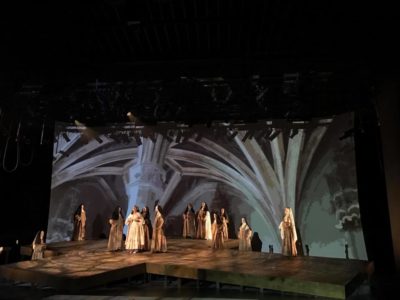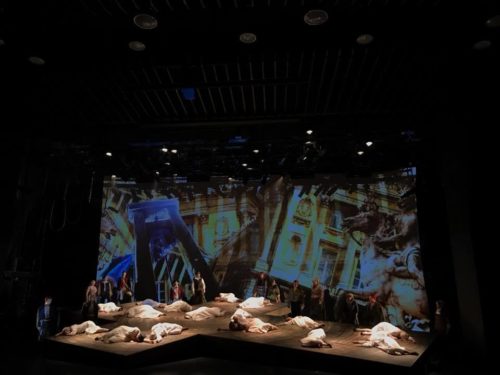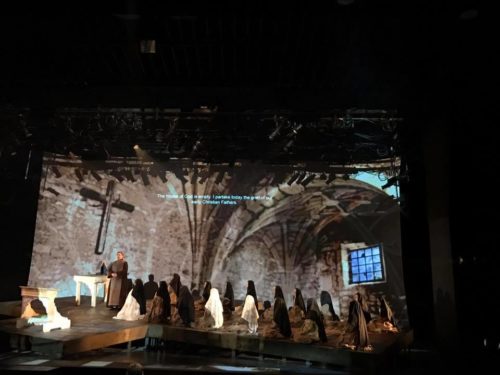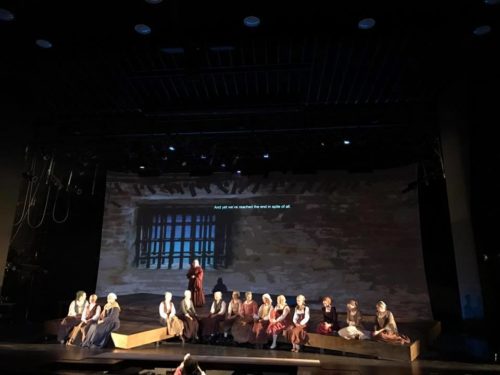by Daniel Hathaway

For those who have seen the opera before, a sense of impending dread sets in early and makes a gradual emotional crescendo for the next three hours. Poulenc includes sixteen dramatic descents of the blade in his music during the final scene. How will the director handle that affecting moment?
Scott Skiba chose transfiguration over tragedy in his visually beautiful production in John Patrick Theater at the Kleis Center in Berea. At the end, having been driven out of their monastery and sentenced to death, the nuns appear onstage clad in the white robes of martyrs, with a projection of the guillotine looming over the scene. Each time the blade falls, a single nun is haloed in an overhead light and falls gracefully to the ground.
Designed and lighted by Jeff Hermann, Dialogues was played on a raked, cruciform platform arranged diagonally across the stage, and Skiba’s staging was simple and effective. Singers doubled as stagehands, carrying tables, chairs, altar, and prie dieux on and off the platform. Projections by Brittany Merenda of gothic arches and other monastic backgrounds filled the cyclorama, sometimes warped and twisted as the drama intensified. Attractive period and monastic costumes were designed by Esther Haberlen.
The student cast was fortified by two professional singers, tenor Timothy Culver as the Chevalier de la Force, and mezzo-soprano Brooke Larimer as Madame de Croissy, the Prioress — stunningly dramatic in her deathbed scene. A strong student cast, including Jake Dufresne (the Marquis de la Force), Sabina Balsamo (Blanche de la Force), Page Heidrich (Meunier), Robin Sensor (Mother Marie), Sarah Antell (Mother Jeanne) and Ciara Newman (Mother Marie), as well as the remaining Sisters, sang beautifully both as soloists and as a choir. The choral moments were ravishing in their chastity.
Conductor Octavio Más-Arocas paced the show expertly and the largish pit orchestra responded flexibly to his direction. Musically speaking, Dialogues suffered from being sung in a stilted English translation which robbed the score of much of its Gallic lyricism — and probably of some of its pedagogical value as well. In any case, the cast’s generally excellent diction made the English supertitles a distraction.
Considering the light-hearted quality of most of his compositions, Dialogues seems an odd subject for Francis Poulenc to have taken on. It’s compelling in its message, though, especially in our own times. As Skiba writes about the nuns of Compiégne in his production notes: “Their sacrifice is a hauntingly relevant testament to the consequence of fear, bigotry and intolerance propagated under the shield of government.” Ironically, the Reign of Terror ended days after the last nun met her death.
Published on ClevelandClassical.com February 28, 2017.
Click here for a printable copy of this article





